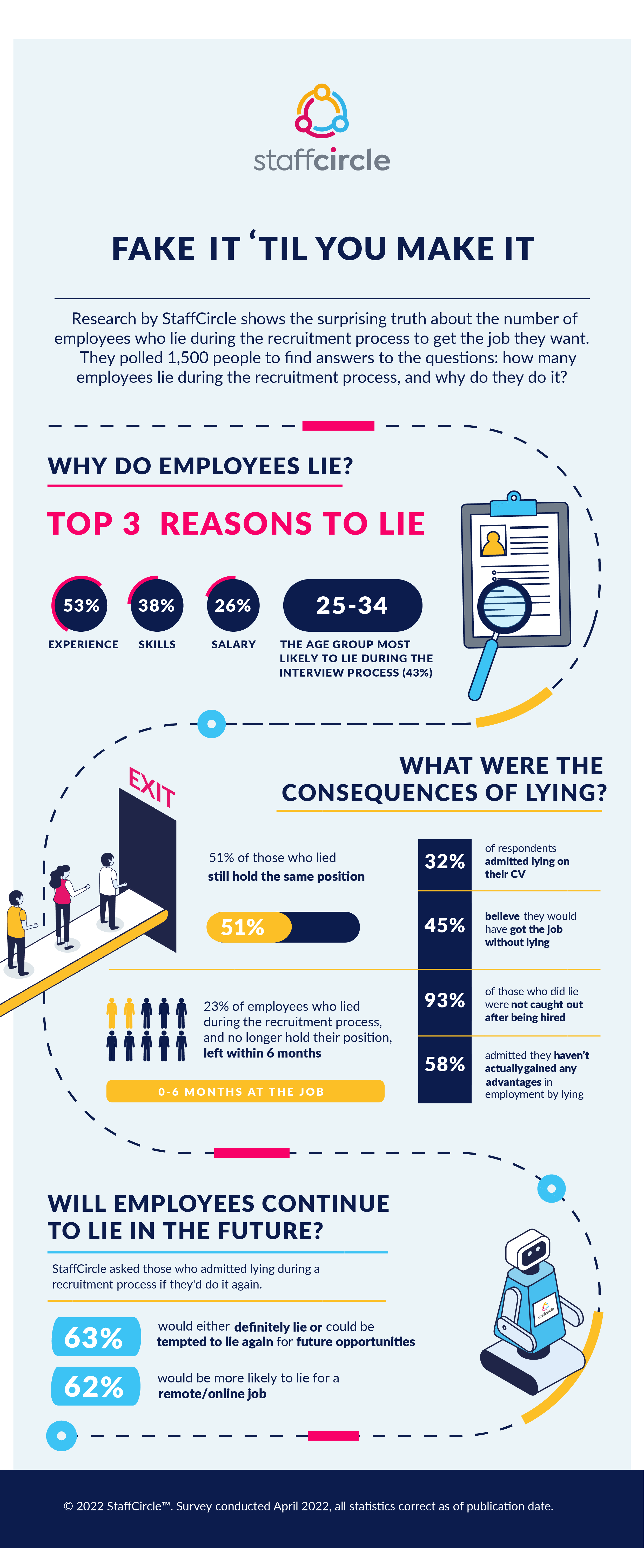When it comes to landing the ideal job, job applicants are making some unbelievable claims. According to a 2022 StaffCircle survey, 1,500 respondents were asked a variety of questions regarding the lies they’ve made during the recruitment process.
This highlights the growing importance of thorough background checks being conducted by businesses. People are more inclined to twist the facts to stay ahead of the competition in a fiercely competitive environment.
Can CV Lying Ever be Helpful?
93% of individuals who lied to gain a new job had not been exposed after being hired, and 40% of those who falsified the truth to get a job were still in that position when the survey was carried out.
According to 42% of workers, lying during the hiring process was beneficial. This might imply that they got the job that, if they had been honest, they might not have. Nevertheless, is lying during the recruitment process even still worth it if 58% of individuals declared it brought them no favours?
Although it could be alluring, lying could seriously harm an employee’s credibility. 14 of the 1,500 applicants who acknowledged lying throughout the hiring process faced legal action.
Why Do People Lie on Their CV?
The study identified the following as the top factors that people are most likely to embellish as a lie on their cv:
- 26% of people lied about their current salaries.
- 51% of people overestimated their work experience.
- 18% lied about their career change.
- 38% lied about their skills.
Salary exaggeration is not an uncommon reason why people lie during the recruitment process. They would do this hoping to receive a better financial package at their new job. Likewise, some people might exaggerate their previous responsibilities if it was more demanding than their job title implied.
The Ramifications of Lying
Any good recruiter will be able to find flaws in a job application full of flattery and fake degrees because most companies search online for additional candidate information via social networks and Google.
Though, this doesn’t stop people from still trying to lie their way through the entire recruitment process. It might appear to be a minor act, lying on your CV will be viewed by the law as committing fraud by false representation, which carries a maximum sentence of ten years in jail under the Fraud Act of 2006.
Peter Knight was somebody who lied, but while he didn’t receive the maximum jail sentence, he was still charged with fraud and received a suspended two-year sentence. He was a former senior manager within the NHS and he falsely declared that he had a Classics degree and secured a senior IT position on a salary of over £130,000.
In other matters, if employees have the common ability to lie during the recruitment process, what’s not to say that they might even lie more once they’ve settled in a job? Perhaps they might fabricate the truth about their illnesses and their need to take sickness days off work.
One of the most effective performance management assessment strategies is the Bradford Factor. This tool provides valuable insights to employers about their employees’ absences that are frequent, as well as addresses a variety of performance issues.
If someone is deemed to be fabricating the truth about their sickness days too much, it is still well within the rights of the employer to take immediate action.

